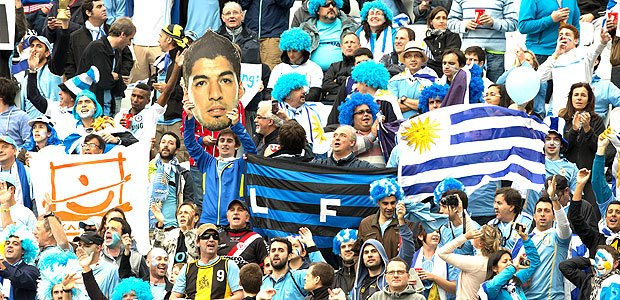Vincent Bevins
Natal
We’ve had a week of the World Cup now, and here’s my first impressions. This is not a promise to do this every week.
Lots of dudes
I was in Berlin for the 2006 World Cup, and I spent a few years thinking about the arrival of the 2014 World Cup, so I really should have expected this. I admit to my stupidity. I admit I was surprised to see that the vast, vast majority of World Cup fans who have arrived are groups of men.
This creates a ‘special’ kind of atmosphere in the host cities outside the stadia. I felt sorry for my two pretty Brazilian friends in Fortaleza. As we walked through the town on Tuesday night, they received about 50 marriage proposals from groups of men from around the world.
Dudes, try saying “Hello, how are you” first. Unfortunately, an old stereotype is still present in the minds of some international gringos, and many seem to have come here with the wrong idea. From what I saw, they were rebuked quite firmly.
Few problems, much fun
Are there some small problems with the tournament? Yes, there are. The main complaints are about transportation. This is not surprising, as this is what most Brazilians complain about. But over all, things are going quite well. Compared to the doomsday scenarios that were commonly imagined before the start, things are going great.
Aside from small hiccups (bad transport, some small crime, police brutality), it’s been a great time for most. It’s the World Cup. It’s Brazil. How were they really gonna screw that up?
So far, I’ve been in São Paulo, Fortaleza, and Natal.
Shouting down the president
In the opening match, President Dilma Rousseff was booed. This has set off a firestorm of conversations about class, race, and politics in Brazil.
Well, actually they didn’t boo. They chanted “Hey, Dilma, take it up the ass!” throughout the game, which is a bit more direct. Afterwards, a famous and respected football journalist Juca Kfouri said that this was disrespectful, and it was the “white elite” who did such a thing, and that they did not represent the Brazilian people.
Without getting into the back-and-forth of the debate here, played out on blogs and social media (it’s gotten boring), I want to mention a few things.
It is true that Dilma is less popular than she was at the beginning of her term. It is also true that the fans at the opening Brazil match were much whiter and richer than average Brazilians. It is also true that Dilma’s supporters are concentrated more strongly in the lower-middle and lower classes than in the upper middle class, and more strongly in almost any other part of Brazil than São Paulo. It is also true that the São Paulo upper middle class still matter, very much (for better or worse), even if they are a different and whiter breed. It also true that it is a sad state of affairs (I’d say inexcusable) that dark-skinned Brazilians are much less likely than white Brazilians to be well-off economically. All of those things are true, even if some look contradictory.
No point in trying to read the tea leaves of a football chant in São Paulo to describe Brazil’s political situation. We’ll have an election to figure that out in October.


